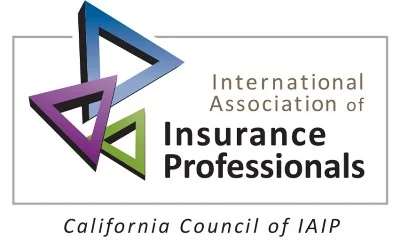Legislation & Court Cases
Legislative Brief: Proposition 36 & Parametric Insurance
As the weather becomes crisper and children of all ages are going back to school, our state is entering another season of sorts, election season. There is a proposition for this year’s ballot that may be of interest to insurance professionals and risk buyers alike.
PROP 36: ALLOWS FELONY CHARGES AND INCREASES SENTENCES FOR CERTAIN DRUG AND THEFT CRIMES. INITIATIVE STATUTE.
Currently, under the voter adopted Proposition 47, “Proposition 47 changed some theft and drug crimes from felonies to misdemeanors. For example, shoplifting (stealing items worth $950 or less from a store) and drug possession generally became misdemeanors.
If California Voters passes Proposition, the following changes will be made: “…this crime a felony if the person has two or more past convictions for certain theft crimes (such as shoplifting, burglary, or carjacking). The sentence would be up to three years in county jail or state prison. These changes undo some of the punishment reductions in Proposition 47.
The passage of this proposition may reduce the property related claims that our insureds who operate commercial business. Since the passage of Prop 47, those who operate retail operations face significant property crimes committed against them (i.e. shoplifting). As many of us know, it has been increasingly more difficult and expensive for risk buyers to secure commercial policies.
Parametric Insurance
No one can escape the realities and challenges of wildfire exposures that affected the California Property Insurance Market. As both as practitioners and consumers we have seen admitted insurance companies either reducing or eliminating their book in wildfire exposed locations. The challenge of wildfire is not limited to personal lines. Commercial Risk Buyers who operate their business in areas of urban interface are affected as well. Risk buyers and Agents/Brokers are now looking to surplus lines markets for solutions for their property risks. As many can attest, this also proves to be a challenge. Recently, many agents and risk buyers considering parametric insurance as an option.
Parametric insurance is defined as the following, “Parametric insurance is an agreement under which an entity assuming risk (the insurer) agrees to pay the indemnitee (the insured) an agreed amount upon the occurrence of a specified event, such as an earthquake or hurricane of specified intensity. The event, or parameter is often indicated by an established and authoritative index for that type of event, such as the Richter scale for earthquake intensity or the Saffir-Simpson scale for hurricanes. For that reason, parametric coverage is also referred to as index-based insurance.
Para meters can be defined by other objective factors, such as the extent of physical damage, and are typically limited to certain time periods and geographic areas. The parties may also develop customized risk parameters based on wind speeds, storm surge, rainfall (or lack thereof), and other factors, both natural and human-driven, alone or in combination.
The California Assembly Insurance Committee has taken interest in Parametric Insurance. Before this committee, Cliston Brown Vice President, Public Affairs for Surplus Line Association of California testified on this topic. Mr. Brown indicated that Parametric Insurance is a new product in CA. The SLA recorded a total of 67 parametric insurance transactions through September 27, 2024.
Here is the breakdown:
The recent named storms in Florida will also make the overall property market more costly for everybody. Coverages like Parametric may off a possible solution for risk buyers who face challenges in the admitted market. As the California legislature and Executive Branch (and CA DOI) respond to this, this type of coverage will be growing. I hope to share with everybody additional developments in future articles.
I look forward to sharing more news from Sacramento in the next article. If you have any questions/comments, please feel free to reach out to me at allenshiu@outlook.com.
Allen Shiu
https://voterguide.sos.ca.gov/propositions/36/analysis.htm
https://www.irmi.com/term/insurance-definitions/parametric-insurance
https://ains.assembly.ca.gov/system/files/2024-10/cliston-brown-sla-october-9-2024-testimony.pdf

